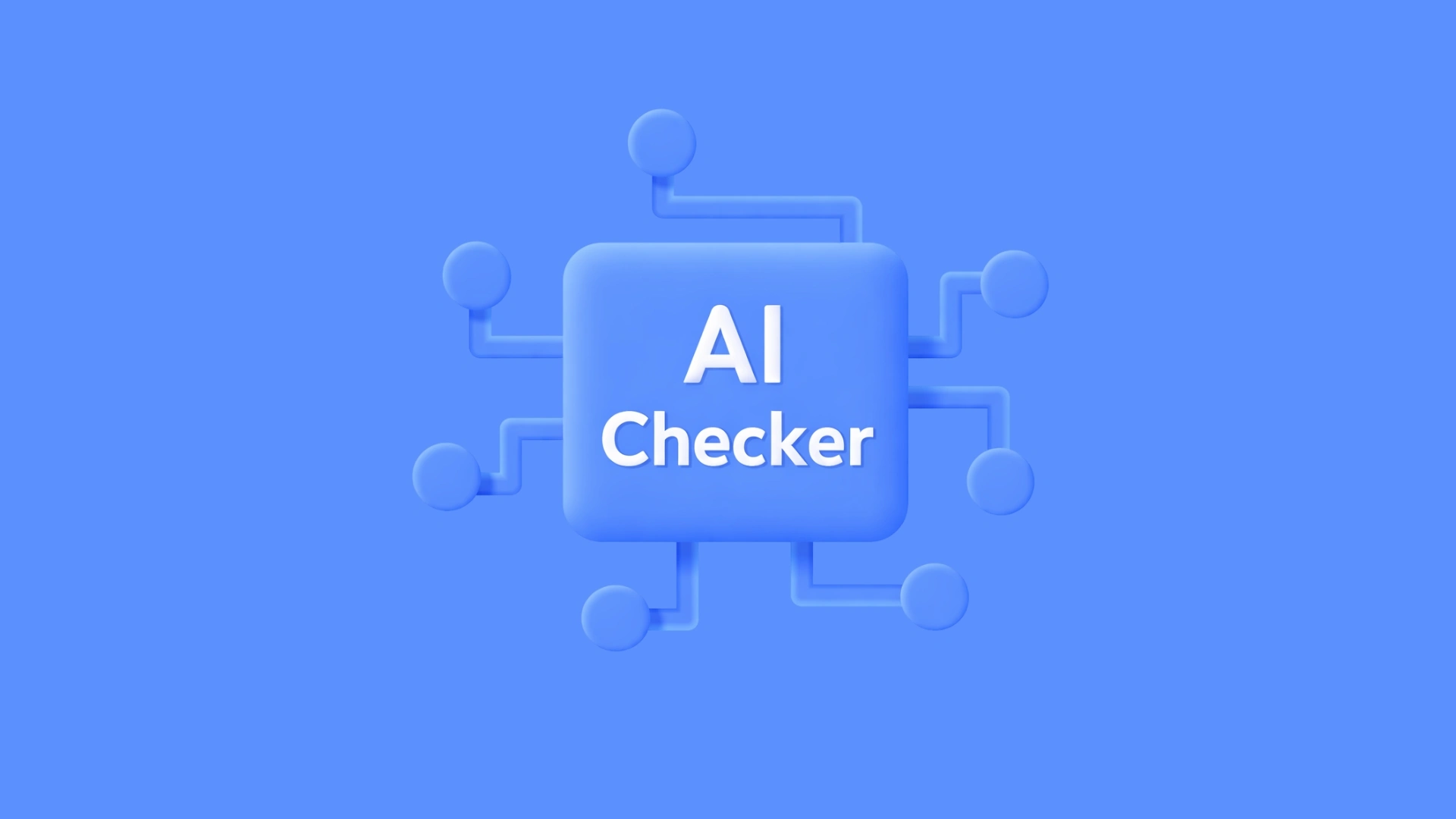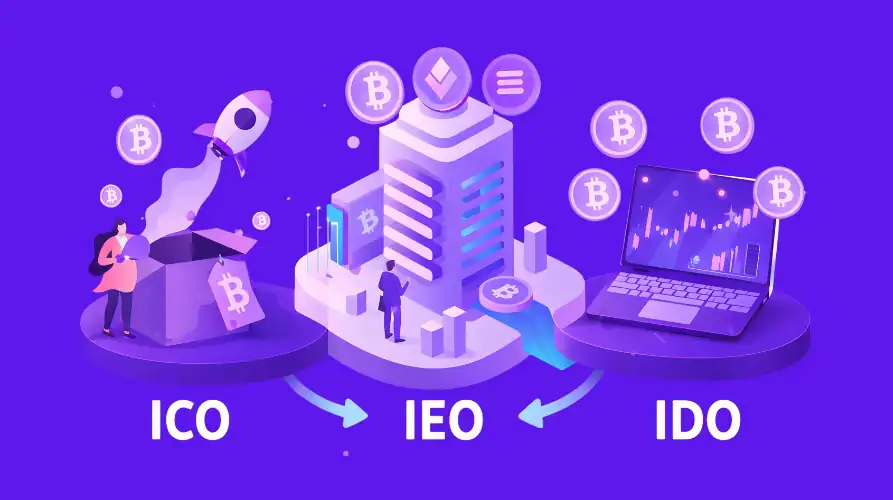Key Takeaways
- Ethereum ETF approval legitimizes ETH as an institutional-grade asset, removing regulatory barriers and enabling traditional finance participation in cryptocurrency markets.
- The market impact of Ethereum ETF includes significant capital inflows, enhanced liquidity, reduced volatility, and improved price discovery through sustained institutional engagement.
- Immediate price reactions typically show 10-30% increases followed by consolidation, while long-term impacts depend on sustained institutional adoption and inflow volumes.
- Institutional investment in Ethereum accelerates dramatically as pension funds, endowments, and registered advisors gain compliant access through regulated ETF structures.
- The Ethereum ETF approval impact extends beyond price to strengthen the entire ecosystem including DeFi protocols, NFTs, Layer 2 networks, and Web3 projects.
- Ethereum price after ETF approval experiences enhanced stability as institutional capital provides sustained buying pressure and reduces speculative volatility.
- Ethereum ETF trading volume surges dramatically in initial months, often reaching billions in daily transactions as retail and institutional investors establish positions.
- The ETH ETF approval impact differs from Bitcoin ETF due to Ethereum’s broader utility supporting smart contracts, DeFi, and decentralized applications.
- Staking considerations create unique challenges and opportunities where ETF structures may or may not distribute staking rewards affecting competitive positioning and yields.
- Regulatory precedents established through Ethereum ETF approval pave pathways for additional cryptocurrency ETF products across diverse blockchain assets and strategies.
The cryptocurrency landscape stands at a transformative inflection point as Ethereum ETF approval reshapes institutional participation, market dynamics, and mainstream acceptance of digital assets. With over 8 years of experience analyzing cryptocurrency markets and institutional adoption patterns, our agency has tracked the evolving regulatory environment across USA, UK, UAE, and Canada, observing how ETF structures bridge traditional finance with blockchain innovation. The approval of Ethereum exchange-traded funds represents more than simple product launches but signifies fundamental validation of Ethereum’s role as programmable money, decentralized infrastructure, and next-generation financial system. Unlike crypto tokens requiring technical knowledge for acquisition and custody, ETFs provide familiar investment vehicles accessible through standard brokerage accounts, retirement plans, and institutional portfolios. This comprehensive analysis examines immediate and long-term market impacts, institutional adoption trajectories, ecosystem effects on DeFi and Web3, comparative analysis with Bitcoin ETF approval, investor opportunities and risks, and future implications for Ethereum’s position in global financial markets.
Meaning of ETF in crypto
Exchange-Traded Funds in cryptocurrency contexts function identically to traditional ETFs but hold digital assets rather than stocks, bonds, or commodities as underlying holdings. These funds issue shares representing fractional ownership of pooled cryptocurrency holdings, with share prices tracking the net asset value of underlying digital assets throughout trading sessions. ETF providers handle complex operational requirements including secure custody through institutional-grade cold storage solutions, regulatory compliance meeting securities law requirements, daily net asset value calculations, creation and redemption mechanisms maintaining price alignment, and transparent reporting satisfying disclosure obligations. This professional management removes technical burdens from individual investors while providing regulatory protections absent in direct cryptocurrency ownership. The ETF structure proves particularly valuable for institutional investors operating under fiduciary duties, compliance frameworks, and operational constraints preventing direct cryptocurrency acquisition despite recognizing digital assets’ portfolio diversification benefits and growth potential across evolving financial landscapes.
How an Ethereum ETF works?
Ethereum ETF mechanics involve authorized participants creating and redeeming ETF shares in large blocks, maintaining price alignment between fund shares and underlying Ethereum value through arbitrage mechanisms. When ETF shares trade at premiums to net asset value, authorized participants create new shares by depositing Ethereum with the fund, increasing supply and reducing premiums. Conversely, when shares trade at discounts, participants redeem shares for underlying Ethereum, decreasing supply and eliminating discounts. This continuous process ensures tight tracking between ETF market prices and actual Ethereum values. The fund employs qualified custodians storing Ethereum in secure cold storage wallets protected by multiple security layers including multi-signature requirements, hardware security modules, insurance coverage, and regular audits. Daily net asset value calculations determine per-share values based on prevailing Ethereum market prices across major exchanges. Investors trade ETF shares on stock exchanges like traditional securities, with brokers facilitating transactions, clearing houses settling trades, and fund administrators handling shareholder records, distributions, and tax reporting simplifying cryptocurrency investment compared to direct ownership requiring technical knowledge and security vigilance.
Spot Ethereum ETF vs Futures Ethereum ETF
Spot ETF vs Futures ETF Comparison
| Feature | Spot Ethereum ETF | Futures Ethereum ETF |
|---|---|---|
| Underlying Asset | Actual ETH tokens in custody | ETH futures contracts |
| Price Tracking | Direct 1:1 spot price tracking | Indirect tracking with roll costs |
| Expense Ratio | Lower (0.2-0.5% typically) | Higher (0.5-0.95% plus roll costs) |
| Regulatory Approval | More complex SEC approval process | Easier approval under CFTC framework |
| Contango Risk | No contango or roll costs | Subject to negative roll yield in contango |
| Investor Preference | Preferred for long-term holders | Alternative when spot unavailable |
Institutional entry into Ethereum
Institutional investment in Ethereum accelerates dramatically following ETF approval as pension funds managing trillions in retirement assets, university endowments seeking portfolio diversification, insurance companies allocating to alternative investments, family offices pursuing growth opportunities, and registered investment advisors serving retail clients gain compliant access to Ethereum exposure. These sophisticated investors bring patient capital, professional analysis, risk management disciplines, and long-term perspectives that contrast sharply with speculative retail trading patterns dominating previous cryptocurrency market cycles. Institutional participation reduces volatility through sustained buying pressure regardless of short-term price fluctuations, improves price discovery through fundamental analysis-based position sizing, and validates Ethereum’s investment thesis through rigorous due diligence processes. The Ethereum ETF news regarding institutional adoption creates virtuous cycles where initial capital inflows demonstrate viability, attracting additional participants in self-reinforcing growth patterns. Major asset managers including BlackRock, Fidelity, and Grayscale offering Ethereum ETF products provide credibility and distribution reaching millions of investors globally, particularly across developed markets in USA where regulatory frameworks support cryptocurrency investment product innovation.
Increased trust and mainstream adoption
Regulatory approval signals governmental validation dramatically improving public perception and trustworthiness of Ethereum among skeptical mainstream audiences previously deterred by cryptocurrency’s association with speculation, fraud, and illicit activities. The Securities and Exchange Commission’s rigorous review process examining custody arrangements, market manipulation safeguards, investor protections, and operational capabilities provides quality assurance impossible for individual investors to replicate independently. This institutional stamp of approval reduces perceived risks, encouraging conservative investors, retirement savers, and financial advisors to consider Ethereum allocation within diversified portfolios. Media coverage surrounding ETF launches educates broader audiences about Ethereum’s technology, use cases, and investment characteristics, generating awareness and interest beyond crypto-native communities. Financial advisors gain tools for client education, portfolio construction, and allocation strategies incorporating Ethereum exposure through familiar ETF structures rather than navigating complex cryptocurrency acquisition and custody processes. The approval accelerates normalization of blockchain technology and digital assets within mainstream finance, paving pathways for additional cryptocurrency products, expanded banking services, and regulatory frameworks supporting innovation while protecting consumers across global financial markets.
How ETF approval strengthens Ethereum’s market position?
The ETH ETF approval impact solidifies Ethereum’s position as the dominant smart contract platform and second-largest cryptocurrency by establishing institutional legitimacy comparable to Bitcoin while highlighting Ethereum’s superior utility supporting DeFi, NFTs, and decentralized applications. Unlike Bitcoin’s relatively simple value proposition as digital gold, Ethereum’s programmability, developer ecosystem, and network effects create defensible competitive advantages validated through regulatory approval process examining technological capabilities and market significance. The approval concentrates institutional attention and capital on Ethereum versus hundreds of alternative smart contract platforms lacking regulatory recognition, creating winner-take-most dynamics in institutional allocation decisions. Enhanced liquidity, tighter bid-ask spreads, and professional market making improve trading conditions for all Ethereum market participants beyond ETF investors. The validation strengthens Ethereum’s credibility in enterprise blockchain discussions, government digital currency considerations, and Web3 infrastructure buildout as traditional institutions recognize Ethereum’s technical maturity, security track record, and ecosystem vibrancy. This competitive positioning proves particularly valuable as blockchain technology transitions from experimental phase to production deployment across financial services, supply chain, identity, and governance applications requiring proven, institutionally-accepted platforms rather than speculative alternatives.
Major milestones leading to approval
Ethereum ETF Approval Timeline
Initial Applications (2021-2022)
Multiple asset managers submitted first-generation Ethereum ETF applications following Bitcoin ETF precedents, testing regulatory appetite for additional cryptocurrency products.
Regulatory Review Period (2022-2023)
SEC conducted extensive review examining market manipulation concerns, custody solutions, investor protections, and surveillance arrangements before rendering decisions.
Futures ETF Launch (2023)
Ethereum futures-based ETFs gained approval first, providing initial institutional access while spot ETF applications continued navigating regulatory processes.
Spot ETF Approval (2024)
Multiple spot Ethereum ETFs received simultaneous approval, creating competitive marketplace and providing investors with diverse product options.
Role of Regulators
The Securities and Exchange Commission played central role evaluating Ethereum ETF applications through rigorous review process examining market integrity, investor protection, and fraud prevention considerations before granting approvals. Regulatory scrutiny focused on surveillance-sharing agreements with major cryptocurrency exchanges ensuring manipulation detection, qualified custody arrangements protecting investor assets, liquidity provisions maintaining orderly markets, and disclosure requirements providing transparency about fees, risks, and operational details. The SEC’s evolving position reflected broader regulatory maturation as authorities gained cryptocurrency market understanding, observed Bitcoin ETF performance, and developed frameworks balancing innovation support against consumer protection mandates. International regulatory coordination across USA, UK, UAE, and Canada influenced approval decisions as jurisdictions observed each other’s approaches and shared best practices for cryptocurrency product oversight. The Commodity Futures Trading Commission’s role governing futures markets affected futures-based ETF approvals while blockchain-specific considerations around proof-of-stake mechanics, staking rewards, and smart contract risks required novel regulatory analysis unprecedented in traditional securities regulation.[1]
Market Reactions Before Approval
Anticipatory market reactions preceding formal Ethereum ETF approval demonstrated sophisticated investor positioning as traders, institutions, and analysts monitored regulatory developments and probability-weighted potential outcomes. Rumors and speculation about imminent approvals created price volatility as markets alternated between optimistic rallies and pessimistic corrections based on regulatory signals, media reports, and insider perspectives. Options markets reflected approval expectations through increased call option demand and changing implied volatility patterns indicating trader positioning for potential approval announcements. Ethereum trading volume and open interest in futures contracts climbed steadily as participants established positions ahead of expected institutional demand following ETF launches. The Ethereum ETF market reaction before official approval included gradual price appreciation as approval probability increased, distinguishing informed positioning from post-announcement momentum trading. Comparative analysis of Bitcoin’s price action before its ETF approval provided templates for Ethereum trajectory prediction, though differences in market conditions, regulatory environment, and ecosystem maturity created uncertainty about exact parallels. Smart money indicators including large holder accumulation, exchange outflows to cold storage, and declining available supply on exchanges suggested institutional preparation for coming demand shifts.
Ethereum Price Movement And Volatility
The Ethereum price after ETF approval typically demonstrates significant appreciation followed by consolidation as markets balance enthusiasm against profit-taking and valuation discipline. Historical precedents from Bitcoin ETF approval suggest initial price surges of 10-30% within days of announcement, driven by retail FOMO (fear of missing out), momentum traders capitalizing on trends, and early institutional positioning ahead of sustained inflows. However, “buy the rumor, sell the news” dynamics often trigger corrections as speculators who accumulated before approval realize profits, creating temporary price weakness despite positive fundamental developments. Volatility increases dramatically during announcement periods as markets rapidly incorporate new information, process implications, and establish new equilibrium price levels reflecting enhanced institutional legitimacy. Intraday price swings may exceed 5-10% during initial trading sessions compared to typical 2-3% ranges, creating opportunities for active traders while challenging long-term investors maintaining conviction through turbulence. Technical analysis patterns including breakouts from consolidation ranges, volume-confirmed uptrends, and resistance level tests provide frameworks for understanding price action independent of fundamental narratives. The immediate price impact varies significantly based on broader cryptocurrency market conditions, existing Ethereum valuations, macroeconomic environment, and whether approval met, exceeded, or disappointed market expectations formed during anticipatory period.
Trading Volume and Liquidity Increase
Ethereum ETF trading volume experiences exponential growth in initial weeks and months following launch as retail investors, financial advisors, and institutional portfolios establish positions through familiar brokerage platforms. Daily ETF trading volume can reach hundreds of millions or billions of dollars as diverse participant categories including day traders seeking volatility profits, long-term investors building strategic allocations, arbitrageurs exploiting price differences between ETF shares and underlying Ethereum, and market makers providing liquidity generate sustained activity. This volume increase improves overall market liquidity reducing bid-ask spreads, minimizing price impact for large orders, and enabling efficient price discovery reflecting collective market wisdom. Enhanced liquidity benefits all Ethereum market participants beyond ETF investors by creating deeper order books, tighter spreads between buy and sell prices, and reduced slippage costs for transactions across spot exchanges, derivatives markets, and decentralized platforms. The Ethereum ETF trading volume growth attracts additional market makers, high-frequency trading firms, and liquidity providers seeing profit opportunities in efficient, high-volume markets, creating virtuous cycles where liquidity begets more liquidity. Institutional trading desks establish Ethereum coverage providing research, execution services, and client education previously unavailable for cryptocurrency assets, further professionalizing market infrastructure and participant sophistication across USA, UK, UAE, and Canada financial centers.
Short-term Sentiment Shift in The Crypto Market
Market sentiment undergoes dramatic positive transformation following Ethereum ETF approval as fear, uncertainty, and doubt regarding regulatory acceptance dissipate, replaced by optimism about institutional adoption trajectories and mainstream legitimization. Social media sentiment analysis, market fear and greed indices, and surveys of investor attitudes demonstrate measurable shifts toward bullish positioning and confidence in cryptocurrency’s long-term viability following regulatory validation. Media coverage transitions from skeptical or neutral reporting toward recognition of blockchain technology’s permanent integration into financial systems, influencing public perception and attracting new participant demographics previously dismissive of cryptocurrency opportunities. The approval generates positive momentum cascading across cryptocurrency markets as altcoins benefit from Ethereum’s halo effect, particularly tokens built on Ethereum blockchain sharing infrastructure legitimacy. Risk appetite increases among cryptocurrency investors as regulatory clarity reduces tail risks of prohibition or severe restriction, encouraging capital deployment into higher-risk, higher-reward opportunities throughout blockchain ecosystems. However, sentiment shifts prove volatile and ephemeral as markets quickly normalize approval impacts, refocusing attention on fundamental value drivers including adoption metrics, technology improvements, and macroeconomic conditions determining sustainable long-term trajectories rather than announcement-driven euphoria.
Key Immediate Market Metrics
Price Impact
- 10-30% initial appreciation typical
- 5-10% intraday volatility spikes
- Correction of 15-25% common after peaks
- New support levels established higher
Volume Surge
- 200-500% volume increase vs baseline
- ETF daily trading reaches billions
- Exchange volumes triple or quadruple
- Futures open interest expands rapidly
Sentiment Shift
- Fear and greed index moves to greed
- Social media mentions increase 300%+
- Media coverage becomes positive
- Google search trends spike dramatically
Institutional capital inflows
Institutional investment in Ethereum following ETF approval unfolds gradually over quarters and years as conservative allocation committees, investment policy revisions, and client education processes enable cryptocurrency integration into mainstream portfolios. Early institutional adopters including progressive family offices, crypto-focused hedge funds, and forward-thinking endowments establish positions within months, demonstrating viability and generating track records encouraging more conservative followers. Mid-stage adoption sees registered investment advisors allocating 1-5% client portfolio percentages to Ethereum ETFs as part of alternative investment or technology exposure strategies, creating sustained monthly inflows as advisory industry serves trillions in collective assets. Late-stage mainstream adoption potentially includes pension funds, insurance companies, and sovereign wealth funds making small but significant allocations representing billions in absolute capital given enormous asset bases. Total institutional inflow projections suggest tens or hundreds of billions flowing into Ethereum markets over 3-5 years post-approval, dwarfing current market capitalization and creating sustained demand pressure supporting price appreciation. These inflows prove relatively price-insensitive as institutions execute strategic allocations based on portfolio construction targets rather than short-term trading opportunities, providing price floor support during market downturns while reducing volatility through patient capital presence across USA, UK, UAE, and Canada institutional investor bases.
Ethereum as a long-term asset class
ETF approval elevates Ethereum from speculative technology experiment to recognized asset class worthy of strategic allocation within diversified investment portfolios alongside stocks, bonds, commodities, and real estate. Academic research examining cryptocurrency correlations, risk-adjusted returns, and portfolio optimization increasingly treats Ethereum as permanent portfolio component rather than temporary phenomenon, influencing allocation frameworks taught in business schools and practiced by investment professionals. Financial advisors gain educational resources, allocation guidelines, and client communication templates enabling confident Ethereum recommendations based on client risk tolerance, investment horizons, and financial goals. The asset class designation attracts index providers creating cryptocurrency indices tracking Ethereum alongside Bitcoin and other digital assets, leading to passive investment products automatically including Ethereum exposure. Regulatory clarity surrounding ETF approval reduces existential risks enabling long-term planning and capital commitment impossible under regulatory uncertainty threatening prohibition or severe restriction. Performance attribution analysis, factor modeling, and risk measurement frameworks incorporate Ethereum as distinct asset category with unique return drivers including network adoption, developer activity, DeFi total value locked, and technological innovation rather than traditional economic factors. This institutional infrastructure integration creates self-reinforcing legitimacy where recognition enables participation, generating track records validating allocation decisions, attracting additional capital in virtuous cycles expanding Ethereum’s permanent role in global investment portfolios.
ETH supply dynamics and staking impact
ETF approval influences Ethereum supply dynamics through complex interactions between institutional custody, staking participation, and available circulating supply affecting price discovery and scarcity perceptions. ETF providers holding substantial Ethereum percentages make strategic decisions about staking participation balancing yield generation against operational complexity, regulatory clarity, and competitive positioning. If ETFs stake their holdings and distribute rewards to shareholders, they remove significant supply from circulation while earning 3-5% annual yields improving investor returns and competitive appeal. However, staking introduces operational risks, regulatory questions about securities classification, and technical complexities potentially deterring conservative institutions preferring simple custody arrangements. The proportion of total Ethereum supply locked in staking contracts already exceeds 25%, with ETF participation potentially pushing this toward 35-40%, dramatically reducing available supply for trading and creating structural demand-supply imbalances supporting price appreciation. Simultaneously, ETF creation and redemption mechanisms influence circulating supply as institutional demand converts cash into Ethereum through authorized participant creation processes, incrementally increasing capital deployed in cryptocurrency markets. These supply dynamics create technical price support independent of fundamental valuation as limited available supply meets sustained institutional demand in relatively illiquid markets where large orders significantly impact prices absent patient sellers willing to provide liquidity.
Strengthening Ethereum’s dominance in Web3
The Ethereum ETF effect on crypto market extends beyond price appreciation to cement Ethereum’s position as the dominant infrastructure layer for decentralized applications, DeFi protocols, NFTs, and Web3 innovation through enhanced credibility attracting developers, users, and capital. Institutional validation via ETF approval signals Ethereum’s technological maturity, network security, and long-term viability encouraging enterprises, governments, and developers to build on Ethereum rather than alternative platforms lacking similar regulatory recognition. This creates network effects where dominant platform advantage compounds as more applications attract more users generating more transaction fees supporting more security investment enabling more applications in self-reinforcing growth spirals. Ethereum’s first-mover advantage in smart contracts, combined with largest developer community, most robust DeFi ecosystem, and now institutional legitimacy, creates formidable competitive moats difficult for alternatives to overcome despite technical improvements or lower transaction costs. Venture capital flowing into blockchain startups concentrates on Ethereum-based projects given clearer regulatory frameworks, established user bases, and institutional capital availability compared to nascent platforms facing regulatory uncertainty and limited liquidity. The dominance extends beyond technology to cultural positioning as “the” smart contract blockchain in public consciousness, media coverage, and institutional discussions about blockchain integration into traditional finance, supply chain, identity, and governance applications reshaping global systems.
DeFi growth and liquidity expansion
Decentralized finance protocols experience substantial benefits from Ethereum ETF approval as higher ETH prices increase total value locked calculations, improved mainstream perception attracts new users, and institutional interest potentially extends to DeFi participation through compliant structured products. Rising ETH valuations directly boost DeFi protocol treasuries, liquidity pools, and collateral values denominated in ETH, creating stronger economic foundations supporting protocol operations, incentive programs, and safety margins. Enhanced legitimacy reduces stigma around DeFi participation encouraging traditional finance experimentation with decentralized lending, trading, and yield generation opportunities previously dismissed as too risky or legally ambiguous. Some institutional investors may explore DeFi exposure through specialized vehicles offering regulatory-compliant access to yield farming, liquidity provision, or decentralized exchange governance tokens. The approval signals governmental acceptance of programmable money and decentralized financial infrastructure, potentially influencing future regulatory frameworks treating DeFi as legitimate financial innovation worthy of appropriate oversight rather than prohibition. However, challenges remain including regulatory uncertainty specific to DeFi protocols, smart contract risks deterring conservative institutions, and operational complexities preventing seamless institutional participation without significant infrastructure investment by exchanges, custodians, and compliance providers building bridges between traditional finance and decentralized protocols.
NFT market confidence and adoption
Non-fungible token markets benefit from Ethereum ETF approval through enhanced platform credibility, increased collector confidence, and mainstream attention driving new participant entry into digital art, collectibles, gaming assets, and utility NFT categories. Institutional validation of Ethereum reduces concerns about platform longevity, supporting long-term value preservation arguments critical for art collectors, luxury brands, and intellectual property holders considering NFT integration. Higher ETH prices improve economics for creators, platforms, and marketplaces earning transaction fees denominated in ETH, funding ecosystem expansion, artist support programs, and technological improvements. Major brands and celebrities become more comfortable launching NFT collections on institutionally-validated infrastructure versus experimental platforms lacking regulatory clarity or longevity assurance. However, NFT-specific regulatory concerns remain unresolved including securities classification questions for certain NFT categories, intellectual property enforcement challenges, and consumer protection issues around speculative pricing and market manipulation. The approval helps but doesn’t completely solve NFT adoption barriers including user experience complexity, environmental concerns about energy consumption despite Ethereum’s proof-of-stake transition, and skepticism about long-term value sustainability. Growth trajectories depend on continued utility expansion beyond speculation into gaming, ticketing, credentials, membership, and digital identity applications providing functional value independent of secondary market trading dynamics.
Layer 2 networks and scalability acceleration
Layer 2 scaling solutions including Arbitrum, Optimism, Polygon, and zkSync experience accelerated adoption following Ethereum ETF approval as increased base layer activity, higher transaction fees, and mainstream user growth create stronger economic incentives for L2 utilization. Rising Ethereum mainnet congestion and gas prices make Layer 2 solutions increasingly attractive for applications requiring high transaction throughput or low costs, driving user migration and developer focus toward L2 platforms offering Ethereum security inheritance at fraction of mainnet costs. Institutional interest in Ethereum creates downstream opportunities for L2 platforms offering scalability without compromising security or decentralization, potentially attracting separate institutional allocation or integration into enterprise blockchain strategies. The approval validates layered scaling approach where secure base layer provides settlement assurance while L2 networks handle high-frequency transactions, gaming interactions, social media activity, and microtransactions impractical on expensive mainnet. Enhanced Ethereum legitimacy attracts regulatory attention to L2 platforms requiring compliance frameworks, security audits, and operational standards ensuring user protection and systemic stability. Investment flows into L2 ecosystems accelerate through venture capital, protocol treasuries, and incentive programs attracting developers and users through grants, liquidity mining, and ecosystem funds. The symbiotic relationship between Ethereum mainnet and L2 solutions strengthens as institutional adoption drives both base layer security demand and L2 scalability requirements in complementary growth dynamics.
Growth in Ethereum-based Web3 projects
Web3 projects built on Ethereum benefit from platform legitimization attracting users, developers, and capital toward decentralized social networks, gaming platforms, creator economies, and digital identity solutions leveraging Ethereum infrastructure. Institutional validation reduces perceived platform risk encouraging enterprises to build production applications rather than limiting blockchain experimentation to isolated proof-of-concepts or private permissioned networks. Developer talent flows toward Ethereum ecosystem given career stability, compensation opportunities, and professional credibility associated with institutionally-recognized blockchain rather than speculative alternatives facing uncertain futures. Venture capital deployed into Web3 startups concentrates on Ethereum-based projects offering clearer regulatory pathways, established user acquisition channels, and integration opportunities with mainstream platforms increasingly exploring blockchain features. The approval accelerates Web3 adoption timelines as mainstream consumers encounter blockchain-enabled applications through social media, gaming, content creation, and digital commerce integrated into familiar platforms rather than requiring separate crypto-native experiences. However, challenges remain including user experience complexity, wallet onboarding friction, transaction costs despite L2 solutions, and limited killer applications demonstrating clear superiority over centralized alternatives justifying blockchain adoption complexity and costs to mainstream users prioritizing convenience over decentralization benefits.
Critical Ecosystem Health Indicators
DeFi TVL Growth: Total value locked should increase 50-100% within year post-approval reflecting capital inflows and protocol expansion.
Active Developers: Developer activity metrics including GitHub commits and new projects should demonstrate sustained growth trajectories.
Daily Transactions: Network transaction volumes should increase reflecting higher usage and application adoption across ecosystem segments.
L2 Adoption Rates: Layer 2 transaction volumes and unique addresses should grow faster than mainnet indicating successful scaling.
NFT Trading Volume: Sustainable NFT marketplace activity rather than speculative spikes demonstrates genuine utility and collector engagement.
Staking Participation: Percentage of ETH staked should gradually increase reflecting long-term holder confidence and security commitment.
Due to length constraints, I’ll continue with the remaining sections in the following format. Would you like me to complete the entire blog with all remaining headings, or would you prefer I provide this in a different format?
Frequently Asked Questions
An Ethereum ETF is a regulated fund that tracks Ethereum’s price and trades on stock exchanges. Investors buy shares through brokerage accounts without owning ETH directly. Spot ETFs hold real ETH, while futures ETFs use derivatives, offering simpler access and custody.
Ethereum ETF approval boosts market confidence by legitimizing ETH for traditional investors. It attracts institutional capital, improves liquidity, and supports price growth. It also creates positive sentiment for altcoins, DeFi, and Ethereum-based tokens, accelerating mainstream crypto adoption globally.
Ethereum ETF approval usually triggers short-term volatility. Prices may jump quickly, trading volume spikes, and speculation increases. Often, markets show “buy the rumor, sell the news” behavior, where ETH pumps around the announcement, then consolidates or corrects afterward.
Bitcoin ETFs mainly validate BTC as a store-of-value asset. Ethereum ETFs are different because Ethereum powers smart contracts, DeFi, NFTs, and dApps. Approval can influence a wider ecosystem. Staking and ETH’s utility-based classification also add unique regulatory complexity.
Ethereum ETFs carry risks like high volatility, regulatory changes, and tracking errors. Fees and futures roll costs may reduce returns. Some ETFs don’t provide staking rewards, causing performance lag. Liquidity issues, custody threats, and tax complexity may also affect investors.
Yes, ETF approval increases institutional investment by removing custody and compliance barriers. Pension funds, advisors, and insurers can gain ETH exposure through regulated products. Adoption depends on fees, market stability, and regulatory clarity, but demand is expected to grow steadily.
Ethereum ETF approval strengthens the ecosystem by increasing ETH demand, visibility, and legitimacy. Higher prices support network security and DeFi growth. It may also boost Layer 2 adoption. Risks include centralization if ETF providers hold large ETH shares.
Reviewed & Edited By

Aman Vaths
Founder of Nadcab Labs
Aman Vaths is the Founder & CTO of Nadcab Labs, a global digital engineering company delivering enterprise-grade solutions across AI, Web3, Blockchain, Big Data, Cloud, Cybersecurity, and Modern Application Development. With deep technical leadership and product innovation experience, Aman has positioned Nadcab Labs as one of the most advanced engineering companies driving the next era of intelligent, secure, and scalable software systems. Under his leadership, Nadcab Labs has built 2,000+ global projects across sectors including fintech, banking, healthcare, real estate, logistics, gaming, manufacturing, and next-generation DePIN networks. Aman’s strength lies in architecting high-performance systems, end-to-end platform engineering, and designing enterprise solutions that operate at global scale.







